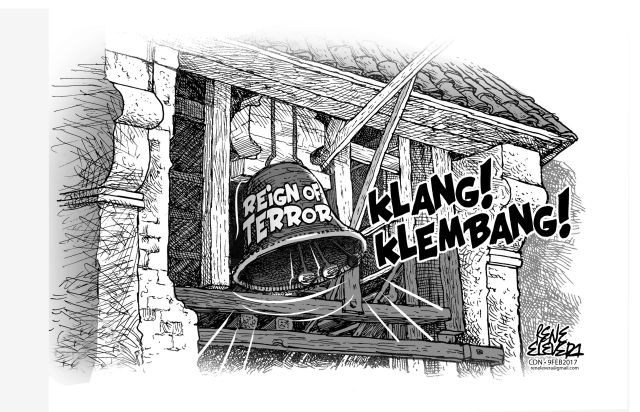The recent debate between the Catholic Church and the Duterte administration in the war against illegal drugs came amid two major developments: one, an Amnesty International report that accused the government of tolerating not only a culture of impunity but also allowing police to benefit from the extrajudicial killings of indigent drug suspects; and two, Congress passing the death penalty bill anew.
While the death penalty bill’s approval may only be a matter of time, the AI report is something the Duterte administration expects and royally thumbs down as part of a so-called “bleeding liberal hearts” propaganda (considering that February is love month, which is symbolized by hearts).
But it goes deeper than that. The Catholic Bishops’ Conference of the Philippines (CBCP) said the ongoing war on illegal drugs has become a “reign of terror” in the country with the extrajudicial killings becoming the norm rather than the deadly exception to law enforcement in the country.
The AI report was even more straightforward, saying that the police had been profiting from the execution of suspected drug dealers through a convenient arrangement with funeral homes where they allegedly get a percentage for every dead body paid for burial by the indigent families.
The “reign of terror” claim had been refuted by the Duterte administration, whose officials said the church had been out of touch with the reality on the ground as they claimed that the people feel a lot more safe and that the relentless war on drugs had reduced the drug supply substantially.
Both claims can be debated endlessly and even viciously by supporters and critics of the administration in every available venue including cyberspace where the new war for the hearts and minds of the Filipino public is being waged in social media.
One would be hard-pressed to read through the voluminous AI report to verify these claims, but based on news stories in traditional media, there never seems to be hard evidence that the drug supply had been drying up.
And Cebu, like every other place in the country, had been the scene of drug suspects winding up dead and plastered with placards warning drug suspects to stop their trade.
With the brazen execution of a South Korean businessman by police now being blamed on a Korean mafia said to be “strongest” in Cebu, not a few people are confused on what other fronts are responsible for the continuing stream of illegal drugs into the country.
What can be agreed on, however, is that the government should do more other than stopping the EJKs and cleaning the police of scalawags who profit from the illegal drug war; and that doesn’t mean reviving either an organization noted for its vicious human rights violations record, or the death penalty whose specter supposedly can scare criminal suspects, which remains highly questionable.
Disclaimer: The comments uploaded on this site do not necessarily represent or reflect the views of management and owner of Cebudailynews. We reserve the right to exclude comments that we deem to be inconsistent with our editorial standards.

